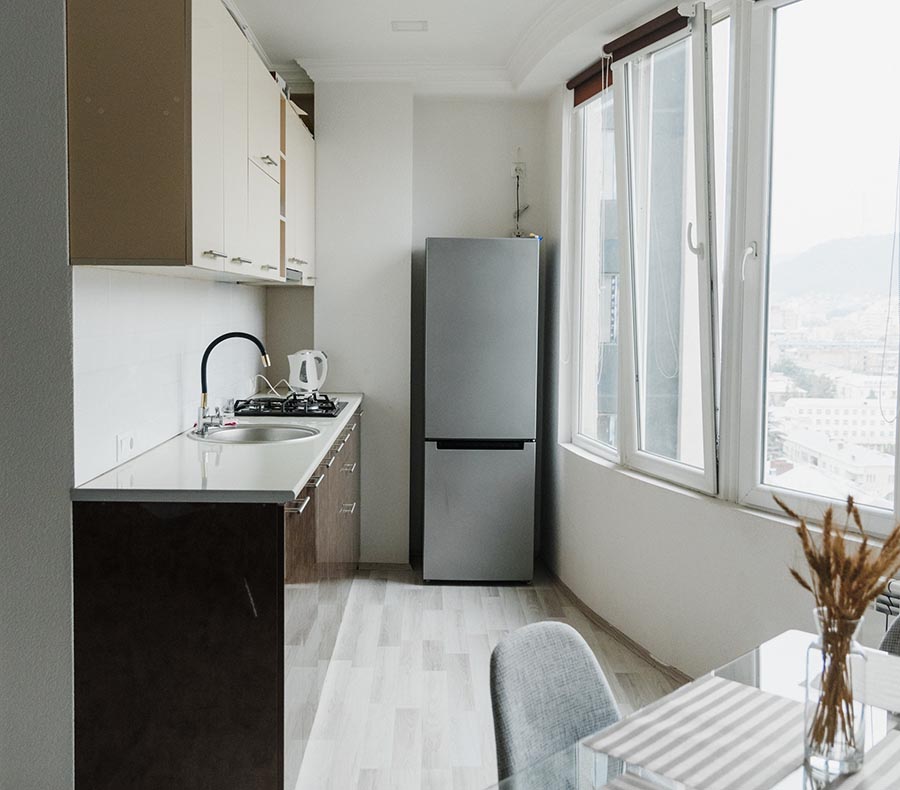Meals taste better when they are made with the freshest ingredients. That’s why many avid cooks choose to replenish their groceries weekly so they always have a stock of fresh food in their kitchens. However, some food items have a shorter shelf life than others. They can spoil or become stale quickly. As a result, food items that have gone bad are thrown away—which also means money is wasted.
If you don’t want this to happen, you need to find ways to extend the shelf life of your food. From maximizing your refrigerator’s features to storing food properly, here are some tips on how to keep your groceries fresh longer.
Maintain Refrigerator Temperature
One of the most effective ways to ensure your groceries stay fresh is to store them in the refrigerator at an optimal temperature. Ideally, your fridge is at least or below four degrees Celsius, while your freezer’s temperature is close to negative 18 degrees Celsius. This temperature helps slow down bacteria growth, which prevents food from spoiling immediately.
Since many new refrigerator models now come with a temperature setting feature, you can easily adjust and set the temperature. Some of the best refrigerator brands even offer refrigeration units with a temperature monitoring panel on the refrigerators’ doors so users can see how cold the interior is without opening the fridge.
In case your fridge does not come with a temperature monitor, you can get a fridge thermometer to track the coolness of your fridge.
Organize Food According to Expiry Dates
If you want to make sure you consume your groceries before they go bad, you need to think about how you organize all food items. When you come home from grocery shopping, take time to put previously-bought items in front and move newly-bought ones close to the back of the fridge or cupboard. Organizing your groceries this way allows you to use the items with earlier expiration dates first, helping you avoid wasting food.
This kind of organization method also makes it easy to spot which food you are running out of and only buy what you need. When your food storage is in disarray, you can’t see what you have in stock and you can end up purchasing items you still have.

Cut Vegetables and Fruits When You Need Them
When you shop for fresh produce, cut them only when you are about to use them. Leaving cut fresh vegetables and fruits in the fridge means they are exposed to the air and vulnerable to bacteria, which can result in faster spoilage and change the taste and texture. Also, cut produce tends to lose its nutrients.
If you end up with leftover cut vegetables and fruits, make sure to store them in air-tight containers inside the fridge. To enjoy their freshness, consume chopped produce within two to three days.
Keep Certain Fruits and Vegetables Separate
At times, the reason your produce spoils so fast is that you store everything together. Some fruits and vegetables need to be stored separately because they release gasses that can shorten the shelf life of other produce. For example, onions and potatoes can spoil quickly when placed together in the same place. Onions are known to emit ethylene gas, which can hasten the ripening process of potatoes. As a result, nearby potatoes will rot faster. Ethylene-producing fruits can even cause spoilage of the entire batch if they are kept in the same container. Once an apple becomes rotten, for instance, it can cause the surrounding apples to spoil faster. So make sure to remove any fruit that has gone bad immediately so as not to spoil the rest of the batch.
On the other hand, if you want unripe avocados to ripen quicker, store them with a bundle of ripe bananas in a paper bag. Similar to onions, bananas produce ethylene that can speedily ripen nearby fruits. It can help to keep a list of ethylene-producing fruits and vegetables in your kitchen so you can organize them accordingly.
Store Food Properly to Slow Down Spoilage
In many instances, food is thrown out because it goes bad before people can consume them. This often happens because the food is not stored properly. If you want to extend the life of certain foods, make sure you know the best way to stock them. For example, wrapping the top of banana stems in beeswax paper or plastic wrap can reduce the fruit’s browning process.
If you buy bread but plan to eat it in the next few days, don’t leave it on the counter. Instead, keep it in the fridge until you’re ready to consume the bread. This will keep molds from growing. On the other hand, if you buy salad greens, take them out of the packaging. Place them in a bowl with a paper towel over them and tightly cover the bowl with plastic wrap. This will prevent the leaves from wilting too fast, so you can enjoy a crisp salad.
Food is best enjoyed when the ingredients are still fresh but unless you do your groceries daily, you’re bound to have some items that are meant to be consumed later in the week. With good kitchen habits and proper storage, you can ensure that these ingredients stay fresh and delicious for as long as possible. Best of all, you can minimize your food waste and ensure that the food you buy goes into your stomach and not the trash.
![]()








